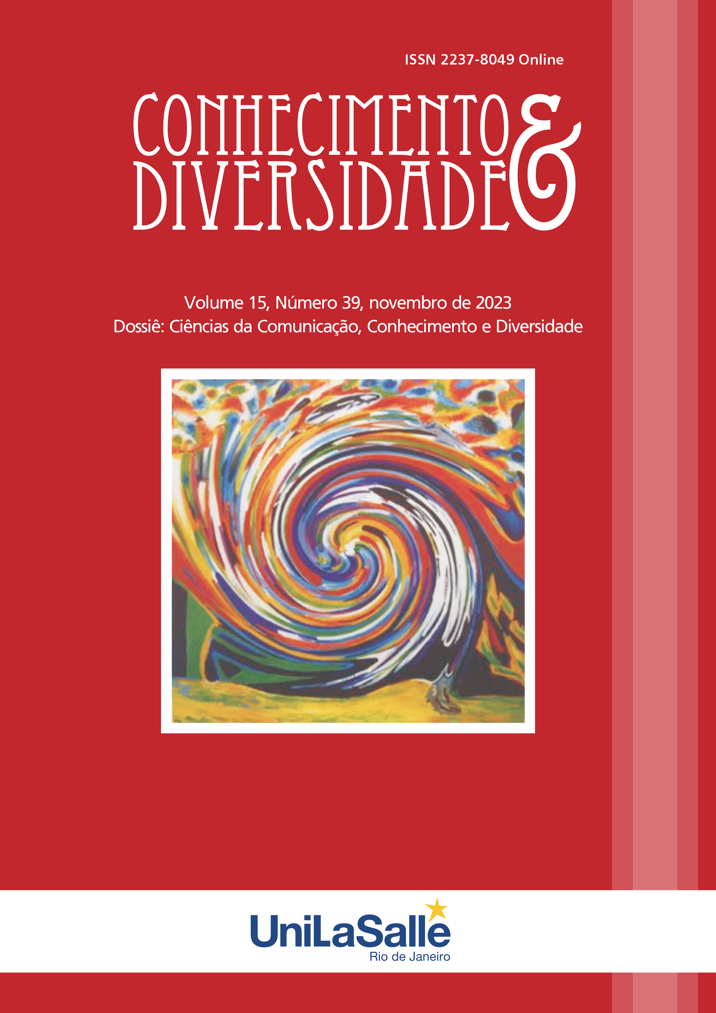DIGITAL TRANSFORMATION IN MASTER’S PROGRAMS
A NEEDS-CENTERED APPROACH FOR E-LEARNING EXCELLENCE
DOI:
https://doi.org/10.18316/rcd.v15i39.11125Keywords:
Digital transformation, Needs centered approach, Strategic planning, Technology integrationAbstract
The Covid-19 pandemic has accelerated the need for successful digital transformation in master's programs, particularly in the realm of e-learning. This article explores the importance of a needs-centered approach in navigating this transformational journey amidst the challenges posed by the pandemic. By understanding and addressing the evolving needs of students in a remote learning environment, educational institutions can effectively leverage digital technologies to deliver high-quality education. The article presents a comprehensive framework for digital transformation, emphasizing the evaluation of student needs and objectives as the starting point. Strategic planning, resource allocation, and timeline development are crucial for the seamless integration of digital tools into the curriculum, taking into account the unique challenges imposed by the pandemic. Faculty and staff training and development play a pivotal role in equipping educators with the skills necessary to facilitate effective online instruction. The adoption of suitable technologies and platforms is explored within the context of e-learning, considering factors such as scalability, security, and user experience. The needs-centered approach highlights the importance of personalized learning experiences to cater to individual student requirements, ensuring engagement and achievement in the virtual classroom. Continuous monitoring, evaluation, and improvement are paramount during the digital transformation process, particularly in the context of the pandemic. Gathering feedback from students and educators allows institutions to adapt and refine their digital initiatives to optimize learning outcomes. Effective change management strategies, including clear communication, robust support systems, and stakeholder engagement, help navigate the challenges presented by the sudden shift to remote learning. In conclusion, a needs-centered approach is crucial for successful digital transformation in master's programs, especially in the face of the covid-19 pandemic. By prioritizing student needs, aligning strategies with remote learning requirements, and leveraging digital tools effectively, educational institutions can ensure the continuity and quality of education. This article provides insights and guidance for institutions seeking to navigate the digital transformation journey in the context of Covid-19, empowering them to deliver exceptional e-learning experiences and prepare students for the future of education.
References
Aammou, S., Jdidou, Y., & El Bakkari, K. (2018). Toward New Method for Adaptive Learning. In Learning Strategies and Constructionism in Modern Education Settings (pp. 177-196). IGI Global.
Ali, W. (2020). Online and remote learning in higher education institutes: A necessity in light of COVID-19 pandemic. Higher education studies, 10(3), 16-25.
Asselman, A., Nasseh, A., & Aammou, S. (2018). Revealing strengths, weaknesses and prospects of intelligent collaborative e-learning systems. Advances in Science, Technology and Engineering Systems Journal, 3(3), 67-79.
Crawford, J., Butler-Henderson, K., Rudolph, J., Malkawi, B., Glowatz, M., Burton, R., Magni, Paola A., & Lam, S. (2020). COVID-19: 20 countries’ higher education intra-period digital pedagogy responses. Journal of Applied Learning & Teaching, 3(1), 1-20.
Iivari, N., Sharma, S., & Ventä-Olkkonen, L. (2020). Digital transformation of everyday life–How COVID-19 pandemic transformed the basic education of the young generation and why information management research should care?. International journal of information management, 55, 102183.
Johnson, L., Becker, S. A., Cummins, M., Estrada, V., Freeman, A., & Hall, C. (2016). NMC horizon report: 2016 higher education edition (pp. 1-50). The New Media Consortium.
Krishnan, S. D., Norman, H., & Md Yunus, M. (2021). Online gamified learning to enhance teachers’ competencies using classcraft. Sustainability, 13(19), 10817.
Maki, P. L., & Shea, P. (Eds.). (2023). Transforming digital learning and assessment: A guide to available and emerging practices and building institutional consensus. Taylor & Francis.
Pawar, V., Thakre, K. S., Pujari, A., Wagh, P., & Pawar, Y. (2020). E-learning on Cloud using Advanced Encryption Standard. International Journal of Embedded Systems and Emerging Technologies, 6(1), 17-27.
Schlosser, L., Hood, C. E., Hogan, E., Baca, B., & Gentile-Mathew, A. (2022). Choosing the right educational technology tool for your teaching: A data-privacy review and pedagogical perspective into teaching with technology. Journal of Educational Technology Systems, 51(2), 236-251.
Tan, S. C., Chan, C., Bielaczyc, K., Ma, L., Scardamalia, M., & Bereiter, C. (2021). Knowledge building: Aligning education with needs for knowledge creation in the digital age. Educational Technology Research and Development, 1-24.
Watkins, K. E., & Marsick, V. J. (2023). Rethinking workplace learning and development. Edward Elgar Publishing.
Zhang, H., Wang, J., & Zhang, P. (2022, December). Research on Curriculum Assessment and Evaluation Method in Blended Learning. In 2022 5th International Conference on Humanities Education and Social Sciences (ICHESS 2022) (pp. 289-297). Atlantis Press.
Downloads
Published
Issue
Section
License
Copyright (c) 2023 Souhaib Aammou , Youssef Jdidou, Abdelfattah Lahiala

This work is licensed under a Creative Commons Attribution 4.0 International License.
As recommended by the Public Knowledge Project, RCD adopts for its articles a CREATIVE COMMONS Attribution CC BY 4.0 license.
This license allows others to distribute, remix, adapt and build upon your work, even commercially, as long as they credit you for the original creation.
This is the most appropriate license offered.
Recommended for maximum dissemination and use of licensed materials.



